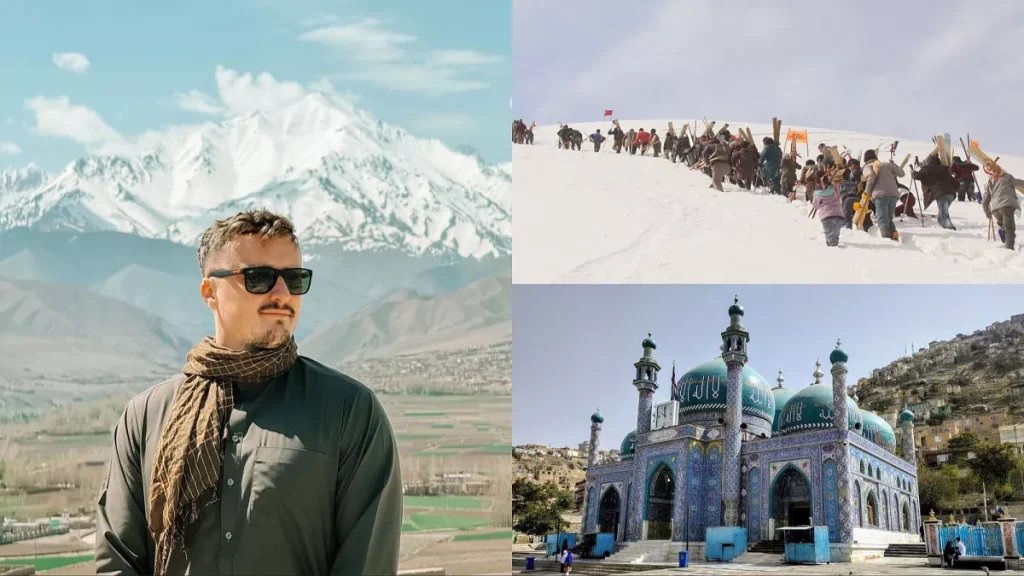Tourism in Taliban-Controlled Afghanistan: A Complex Reality
In the heart of a nation deeply scarred by conflict and oppression, an unexpected trend is emerging: Afghanistan is experiencing a growing influx of international tourists. Despite being ruled by one of the world’s most oppressive regimes, the Taliban-controlled country has seen tourism numbers rise dramatically in recent years. This paradoxical situation raises profound questions about travel ethics, cultural exchange, and the human desire to explore places beyond headlines. Since the Taliban retook control in 2021 following the withdrawal of US troops, Afghanistan has regressed in terms of human rights, particularly for women, who are now forbidden from secondary and higher education – making it the only country in the world with such restrictions. Yet against this troubling backdrop, travelers are increasingly drawn to Afghanistan’s natural landscapes, culinary traditions, and religious landmarks, creating a complex ethical dilemma for both visitors and observers.
While precise tourism statistics are difficult to verify, the trajectory is clear and substantial. According to Deputy Minister of Tourism Qudratullah Jamal, Afghanistan welcomed nearly 9,000 international tourists in 2023, with an additional 3,000 visitors in just the first quarter of 2024. Some reports suggest August 2023 alone saw 5,000 foreign tourists enter the country. These numbers represent remarkable growth from the mere 691 international visitors in 2021 immediately following the Taliban takeover, increasing to 2,300 in 2022, and then experiencing a dramatic 120 percent surge to 7,000 tourists in 2023. Though modest compared to mainstream destinations like Spain or Greece, this consistent upward trend signals growing interest in visiting Afghanistan despite – or perhaps because of – its current political situation and the challenges it presents to travelers.
Among those venturing into Taliban-controlled Afghanistan are experienced travelers like Kieran Brown, a content creator who has visited over 130 countries and spent ten days in Afghanistan in March 2023. Brown describes being drawn to the country’s “mysterious mix of beauty, history and resilience” and conducted his own safety research before traveling. Despite multiple interactions with Taliban members during his journey, he characterized these encounters as “surprisingly calm” and never felt personally threatened, though he acknowledges the surreal experience of creating content while being questioned by Taliban officials. His highlights included exploring Kabul’s old streets, visiting the Blue Mosque in Mazar-i-Sharif, and connecting with locals about their daily lives. “The hospitality and the food were unbelievable,” Brown told Euronews Travel. “It’s not a typical tourist destination but it’s one of the most eye-opening experiences you can have.”
Zoe Stephens, an international tour manager with extensive experience in unusual destinations, has visited Afghanistan three times since 2023, initially to plan tours alongside local female guides. Like Brown, she dismisses travel warnings, preferring to form her own impressions: “I wanted to see Afghanistan myself to go beyond the headlines.” Stephens particularly enjoys Herat, Afghanistan’s third-largest city, which she describes as “liberal” and “very relaxed.” Her favorite memories center on simple pleasures: “enjoying snacks on the roadside on long scenic drives, enjoying tea and honey in a nomad beekeeper’s tent, and trying fresh mulberries.” While encounters with Taliban forces at checkpoints are unavoidable, Stephens reports these interactions were “generally very pleasant” as the regime appears to welcome tourism. However, she notes occasional negative experiences with the “morality police” who may enforce dress codes or restrict access to public spaces.
The ethical dimensions of traveling to Afghanistan under Taliban rule are profoundly complex. James Willcox, owner of travel company Untamed Borders and author of a guide to Afghanistan, argues that meaningful interactions between visitors and locals helps “normalise” the country, showing aspects of Afghanistan beyond conflict and politics. “People are not their governments,” Willcox explains. “Visitors to Afghanistan experience the country on a human scale and see that, despite its challenges, there’s humour, beauty, and hospitality everywhere you go.” This cultural exchange can reduce stigma attached to places often viewed only through “the prism of headlines about terror and extremism.” However, Willcox acknowledges the inherent contradiction: tourism may also help normalize a government that severely restricts women’s rights, preventing them from working, appearing in public without male chaperones, or even having their voices heard in public spaces. He notes the poignant example of a former female guide who fled after the Taliban takeover and now conducts virtual tours of Afghanistan from Italy since she can no longer work in her homeland.
For potential travelers considering Afghanistan, significant barriers and risks remain. Governments worldwide, including the UK, Ireland, and Germany, strongly advise against travel to Afghanistan due to security concerns and limited consular support. The UK’s Foreign Office warns that British citizens risk detention that could result in “years of imprisonment,” while Germany doesn’t even recognize the Taliban as Afghanistan’s legitimate government. Travel insurance typically becomes invalid in countries under such advisories. Despite these warnings, the Taliban appears neither to actively promote tourism nor prevent visitors from arriving. This creates an unusual situation where determined travelers can visit, but do so largely at their own risk and with limited official support. The ethical question remains deeply personal: does visiting Afghanistan provide valuable economic support to ordinary citizens and foster human connections beyond politics, or does tourism inadvertently legitimize a regime responsible for systematic human rights abuses? As tourism numbers continue to grow, this question becomes increasingly relevant for travelers, the tourism industry, and the international community’s approach to Afghanistan’s isolation.


